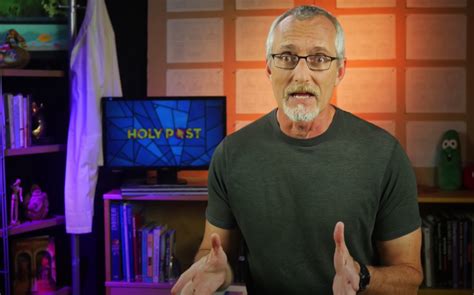A Quote by Upton Sinclair
A large section of the idling classes of England get their incomes by believing that Jesus was born of a virgin and that Jonah swallowed a whale; and with the progress of science they were naturally finding this more and more difficult. A school of ingenious Bible-twisters arose, to invent symbolical and literary meanings for fairy tales, in order that people who no longer believed could continue with good conscience to collect the salaries of belief.
Quote Topics
Belief
Believed
Believing
Bible
Born
Classes
Collect
Conscience
Continue
Could
Difficult
England
Fairy
Fairy Tale
Fairy Tales
Finding
Get
Good
Ingenious
Invent
Jesus
Jonah
Large
Literary
Longer
Meanings
More
More And More
Naturally
Order
People
Progress
Salaries
School
Science
Section
Swallowed
Tales
Were
Whale
Related Quotes
[Fairy tales] are like a journey to the woods and the many ways you can get lost. Some people say it's not a good idea to read fairy tales to anyone under the age of eight because they are brutal and raw. When I was a kid I often felt that kids's books were speaking down to me, but I never felt that way about fairy tales. They are bloody and scary, but so is life.
We had learned how to invent things, and the question of why we invent things receded in importance. The idea that if something could be done it should be done was born in the nineteenth century. And along with it, there developed a profound belief in all the principles through which invention succeeds: objectivity, efficiency, expertise, standardization, measurement, and progress. It also came to be believed that the engine of technological progress worked most efficiently when people are conceived of not as children of God or even as citizens but as consumers-that is to say, as markets.
I grew up with Bible stories, which are like fairy tales, because my father was a minister. We heard verses and prayers every day. I liked the gorier Bible stories. I did have a book of Chinese fairy tales. All the people except the elders looked like Italians. But we were not a family that had fiction books.
The Bible represents a fundamental guidepost for millions of people on the planet, in much the same way the Koran, Torah, and Pali Canon offer guidance to people of other religions. If you and I could dig up documentation that contradicted the holy stories of Islamic belief, Judaic belief, Buddhist belief, pagan belief, should we do that? Should we wave a flag and tell the Buddhists that the Buddha did not come from a lotus blossom? Or that Jesus was not born of a literal virgin birth? Those who truly understand their faiths understand the stories are metaphorical.
Though now we think of fairy tales as stories intended for very young children, this is a relatively modern idea. In the oral tradition, magical stories were enjoyed by listeners young and old alike, while literary fairy tales (including most of the tales that are best known today) were published primarily for adult readers until the 19th century.
What I have against religion is that they start you when you are so defenseless. I mean, I was three when they started pumping this bullshit into my head. I believed in Santa Claus and the Fairy Godmother, of course I believed in a virgin birth, and a guy lived in a whale, and a woman came from a rib. But then something happened that made me doubt all of it: I graduated sixth grade!
I love monsters, I love creatures, I love beings, I love aliens. That's more supernatural and more the stuff of fairy tales. Fairy tales are as ancient as we are. I love those stories. I think they're really interesting because they always have more than simply the fright aspect. There's something deeply psychological.
The traveler from Europe edges into it like a tiny Jonah entering an inconceivably large whale, slipping past the straits of Belle Isle into the Gulf of St. Lawrence, where five Canadian provinces surround him, for the most part invisible... to enter Canada is a matter of being silently swallowed by an alien continent.


































